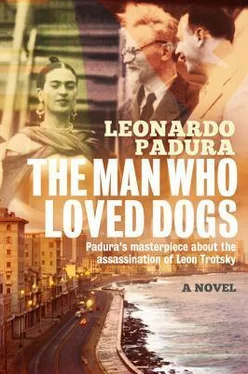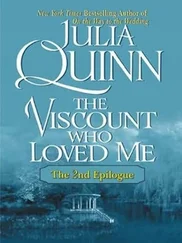A few weeks later he accepted, without much enthusiasm, his wife and his son’s proposal to travel around the Sea of Marmara to the Prinkipo islands. The small volcanic archipelago, an hour and a half from the capital, had been the refuge of dethroned Ottoman princes and the place in which, in 1919, a peace conference to end the Russian civil war had been proposed. Lev Davidovich would use that journey to take his mind off things, sunbathe, and taste the delicate Turkish pastries known as pochas and pides of which Natalia had become a fan. Two young Trotsky sympathizers whom his friend Alfred Rosmer had sent from France a few days before traveled with them to guarantee a minimum of security.
The small steamboat sailed at nine in the morning. Covered in hats, they occupied the prow and enjoyed the scenery that Istanbul’s two halves offered. Lev Davidovich, nonetheless, tried to look beyond the buildings, the pointed churches, the convex mosques; he tried to look for himself in that city in which he did not have a single friend or a trustworthy follower. And he didn’t find himself. He felt that, at that exact moment, his exile was beginning — true, complete, without any support. Aside from his family and a very few friends who had reiterated their solidarity, he was a man who was overwhelmingly alone. His only useful allies for a battle like the one he had to initiate (how? where?) were still confined in work camps or had already given in, but all of them remained within the borders of the Soviet Union, and his relationship with them was snuffed out by distance, repression, and fear.
Every time he evoked that seemingly pleasant morning, Lev Davidovich would remember that he had felt the urgent need to press Natalia Sedova’s hand in his to feel human warmth close to him, to not suffocate from the anxiety caused by the threatening sensation of loss. But he would also remember that at that moment, he had confirmed his decision that, although he was alone, his duty was to fight. If the revolution for which he had fought was prostituting itself in the dictatorship of a czar dressed up as a Bolshevik, then he would have to rip it out by the roots and replant it, because the world needs true revolutions. That decision, he was well aware, would bring him closer to the death that was pursuing him from the Kremlin’s watchtowers. Death, nonetheless, could only be considered an inevitable eventuality: Lev Davidovich had always thought that, since individual sacrifice is often the firewood burned in the pyre of the revolution, the lives of one, ten, one hundred, one thousand men could and even should be devoured if the social tornado demanded it in order to reach its transformative ends. So he laughed when certain newspapers insisted on mentioning his “personal tragedy.” What tragedy were they referring to? he would write. In the superhuman process of the revolution, there was no room for personal tragedies. His tragedy, if anything, was knowing that in his struggle he didn’t have any fellow believers at hand who’d been forged in the ovens of the revolution, nor the economic means and, less still, a party. But he still had what had always been his best weapon: the pen, the same one that had spread his ideas in the contributions he made to Iskra and that, during his first round of exile, had led him to the heart of the struggle on that night in 1901 in which he received the message capable of locating his life as a fighter right in the vortex of history: his pen had been called for at Iskra ’s headquarters in London, where he was expected by Vladimir Ilyich Ulyanov, already known as Lenin.
With a wave of his hand, Liova commented that the fishermen’s village visible on the coast was called Büyükada, and the young man’s words brought him back to the reality of an islet covered by pines and dotted with some white buildings. It was then that, tempting fate, he asked if they could disembark there to have lunch: almost without thinking, he added that he liked that place, since it was undoubtedly a calm enough place to write in and had good fishing to test his muscles. Natalia Sedova, who knew him like no one else, watched him and smiled: “What are you thinking, Liovnochek?”
The woman would find out just a week later and be happy: they were going to live in Büyükada, the largest of the islets in the archipelago of exiled princes.
It had not been hard to find the right house to fit their needs and pockets. Built atop a small promontory, about six hundred feet from the dock, its two levels seemed to reach higher and to place historic Propontis at the disposal of its inhabitants. They also appreciated the fact that the building was surrounded by a dense hedge that facilitated security, the responsibility of two policemen sent by the government and some young Frenchmen, fellows of his follower Raymond Molinier. In reality, the villa, the property of an old Turkish Baha’i, was as run-down as its owner, and Natalia Sedova was forced to roll up her sleeves to make it inhabitable. Between all of them — including policemen, watchmen, and even passing journalists — they cleaned, painted, and equipped the furnished spaces that were necessary to eat, sleep, and work. The temporary nature of their settlement in that refuge could be seen in the absence of any objects meant to make it beautiful; there wasn’t even a simple rosebush in the garden: “To plant a single seed in this land would be to accept defeat,” Lev Davidovich had warned his wife, since he still had his mind focused on the centers of battle to which, sooner or later, he thought he would manage to gain access.
Throughout that first year of exile, the most tiresome task facing those guards charged with the revolutionary’s security had been to deal with the journalists intent on getting a scoop, that of welcoming editors from around the world (who had offered contracts for various books and made generous advances capable of alleviating the family’s economic difficulties) and verifying that the followers and friends who began to arrive were who they said they were. At the margin of these interferences, life on an island lost to history, inhabited throughout most of the year only by fishermen and sheepherders, seemed so primitive and slow that any outside presence was immediately detected. And although he was a prisoner, Lev Davidovich had felt almost happy for having found that place where a car had never driven and where things were transported as they were twenty-five centuries before, on the back of a donkey.
Barely settled, the Exile began to prepare his counteroffensive and decided that the first necessity was to unite the opposition outside the Soviet Union, although he would soon discover the extent to which Stalin had anticipated this, tasking his peons in the Communist International with converting Trotsky’s person and ideas into the specter of the revolution’s greatest enemy. As could be expected, there were few European Communists who dared to adopt the “Trotskyist” heresy, especially when it didn’t seem to offer any practical advantages and, soon, would lead to immediate excommunication from the party and even from the ranks of revolutionary fighters. Nonetheless, Lev Davidovich insisted, and he unloaded on the shoulders of his son Liova the organization of the oppositionist movement while he focused on working personally with the most noteworthy followers. The rest of the time he would spend writing an autobiography he had begun in Alma-Ata and gathering information for a planned History of the Russian Revolution .
Among the visitors he received in those initial months were his old comrades Alfred and Marguerite Rosmer, the ever politically complicated Pierre Naville and Boris Souvarine, and the impulsive Raymond Molinier, who, with the same enthusiasm with which he would embark on a summer excursion, had dragged along his wife, Jeanne, and his brother Henri. But the first to arrive, as could be expected, had been his good friends Maurice and Magdeleine Paz, whom he had not seen since the Trotskys were expelled from France in the middle of the Great War. The couple’s arrival, weighed down with French cheeses, brought a breath of happiness wrapped in the certainty of a freedom that allowed them the luxury of welcoming old comrades. Throughout the year of deportation in Alma-Ata, the Pazes had been their representatives in Paris and had traveled to Prinkipo to update their accounts and duties and to reconfirm their unshakable solidarity.
Читать дальше











